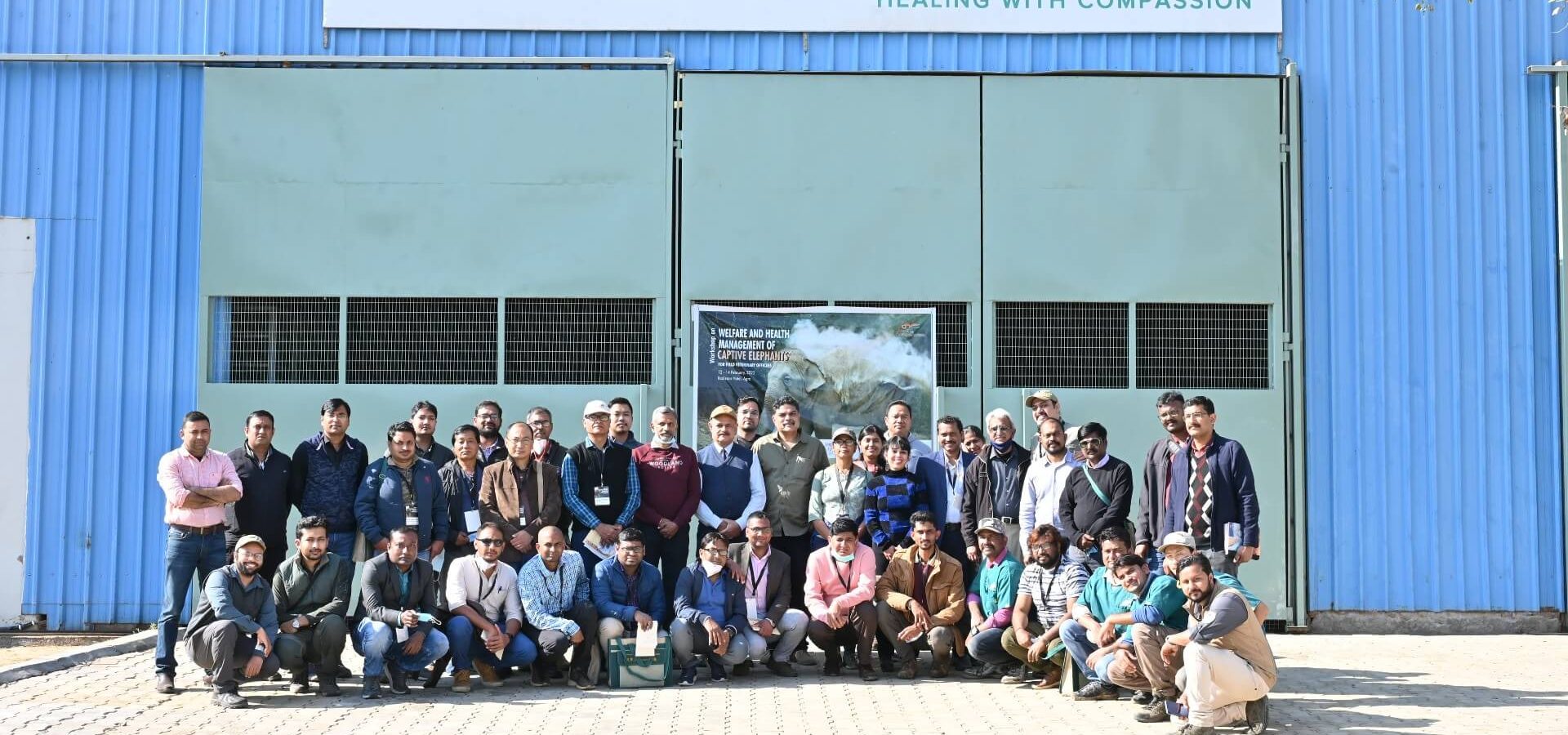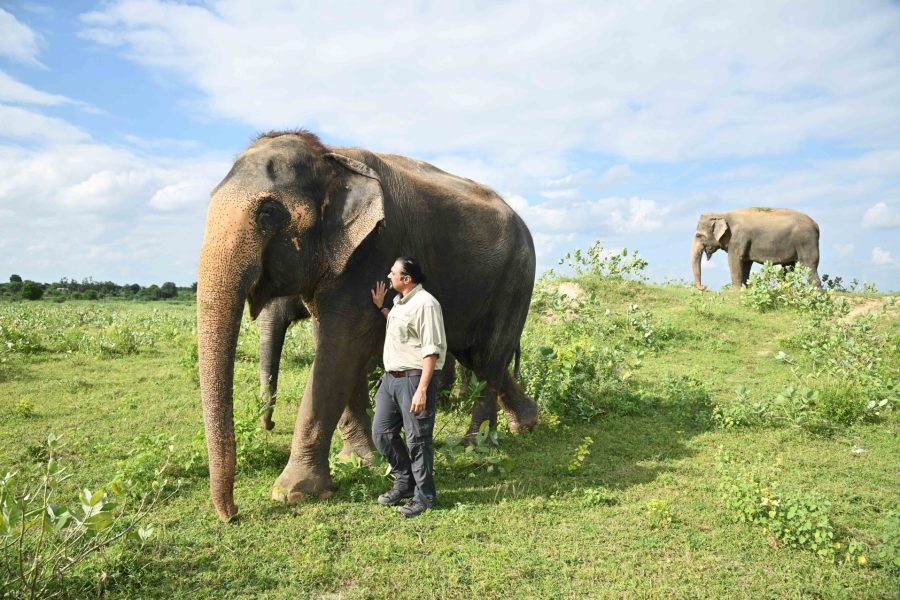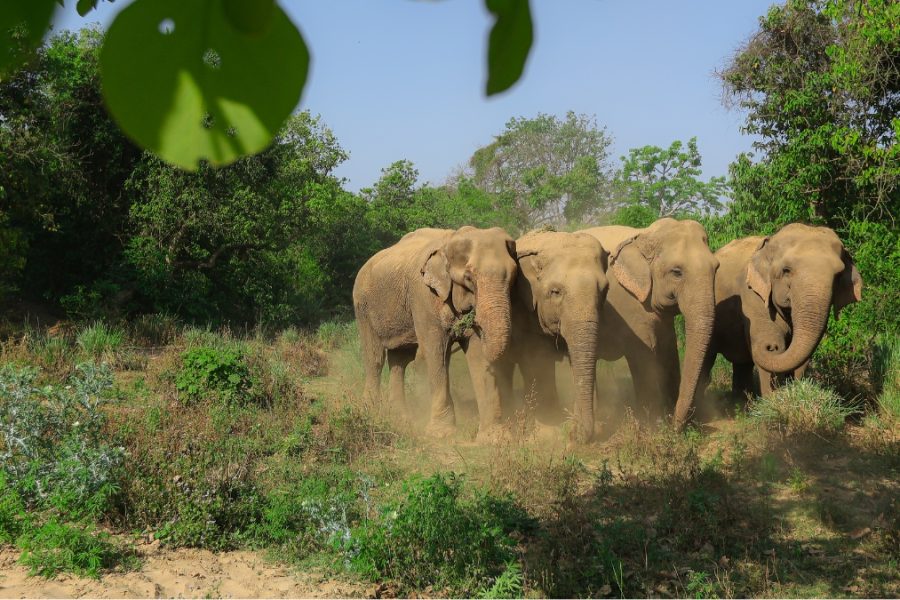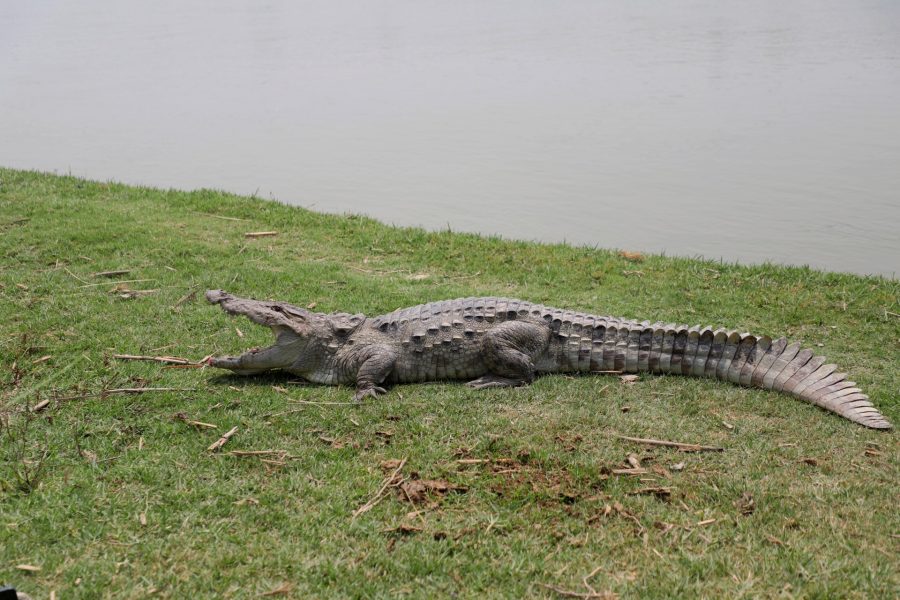Elephant care is a matter of urgent importance for wildlife conservationists in India. With the dwindling elephant population, the focus is not only on the preservation of the elephant population in the wild but also on the welfare of the substantial number of captive elephants that are present within human settlements. Keeping this in mind, a three-day workshop for veterinarians on the topic – Welfare and Health Management of Captive Elephants – was held in Agra. This workshop was an attempt to bring together conservationists from all over the country and allow them to share their unique experiences and build a depositary of knowledge for young veterinarians in the field to fall back on.

The Elephant Cell at Wildlife Institute of India (WII), Project Elephant Division, MoEF&CC in collaboration with Wildlife SOS and the Uttar Pradesh Forest Department conducted the three-day workshop in Agra between the 12th – 14th of February, 2022. One of the most important points, that was addressed multiple times throughout the workshop, was regarding the increasing human-elephant conflict in India. Due to habitat fragmentation and depletion of forests, it comes as no surprise that elephants often find themselves on the fringe of human civilization in search of food and shelter. We often see human-elephant conflict arise when wild elephants are thrust into an area inhabited by humans. Many a time, farmers wake up to find their entire life’s worth of hard work destroyed when an elephant herd passes through.
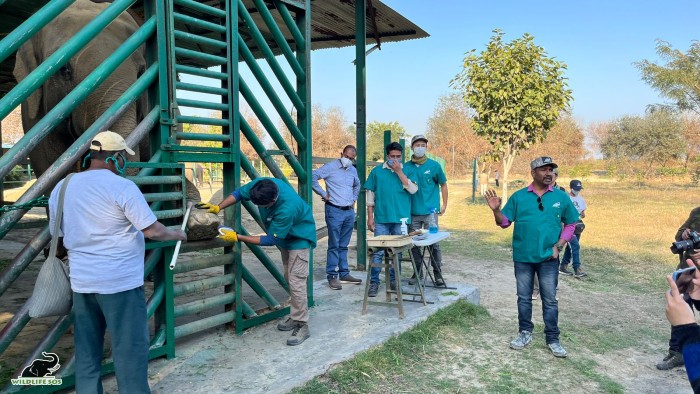
For this event, we can neither blame an individual farmer, who is just trying to earn their livelihood, nor the elephant herds who have found their age-old migration routes turned into farmlands. This is a result of the lack of proper protection of forest lands and the livelihoods of people. At a time like this, it is of increasing importance that veterinarians and conservationists come together to find long-term solutions in the best interests of humans and elephants.
Elephants have been interwoven in human history for a long time – as symbols of worship in India, as war elephants for various kingdoms, and as beasts of burden used for logging. Unfortunately, there is still a very high number of captive elephants that live under the subjugation of humans, to be used for tourism, begging, zoos, processions etc. With the increasing human-elephant conflict, many feel that it is highly likely that more elephants will be stolen away from the wild and forced to live in captivity amongst humans.
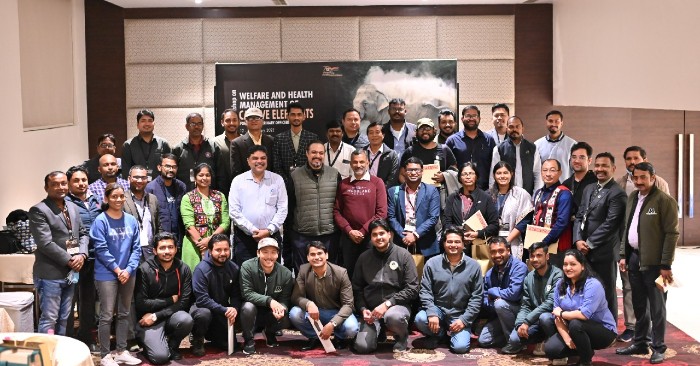
The focus of the workshop was to ensure humane treatment of any elephants that were living in the presence of humans, as well as the technical and veterinary aspects of elephant care. The workshop covered many topics such as the general ecology and behaviour of elephants, disease management, veterinary interventions, musth management in bull elephants, transportation of elephants, and the legal provisions for elephants in India.
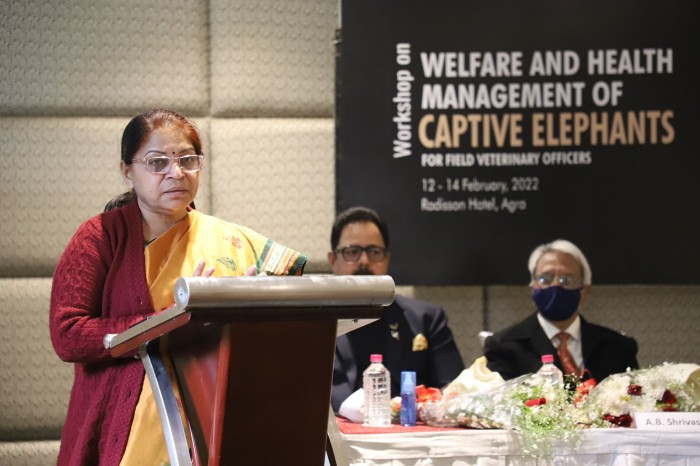
The Inaugural session was graced by Chief Guest, Smt. Mamta Sanjeev Dubey, IFS, Principal Chief Conservator of Forests & HoFF of Uttar Pradesh along with Sh. Ramesh K Pandey, IFS, Inspector General of Forests (Project Elephant), MoEF&CC, Govt. of India, Dr. K. Muthamizh Selvan, Scientist, D, PE Division, MoEF&CC, Dr. Parag Nigam, Head, Dept. of Wildlife Health Management & NO, Elephant Cell, Sh. Kartick Satyanarayan, Co-founder and CEO – Wildlife SOS, Dr. Dhananjai Mohan, IFS, Director, Wildlife Institute of India, Sh. C.P. Goyal, IFS, Director General Forests & Special Secretary, MoEF&CC, Govt. of India and Sh. Baiju Raj. M.V., Director- Conservation Projects, Wildlife SOS, and Dr. K.K. Sarma, Professor and Head, Dept. of Veterinary Surgery, Guwahati Veterinary College, Assam to name a few.
After the welcome session and the introductions, the workshop was launched and various keynote speakers from across 16 states conducted presentations for the veterinarians. The first and third days of the workshop consisted of many enlightening sessions in the form of presentations while the second day consisted of a field visit to Wildlife SOS facilities.
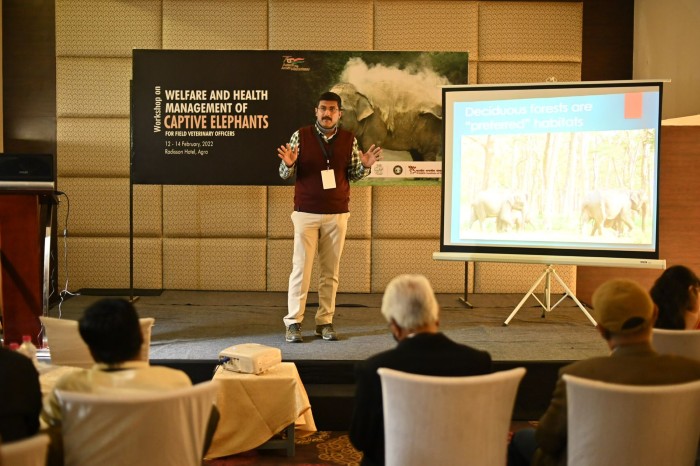
The first session was on Elephant Ecology and Behaviour by Sh. Lakshminarayanan, (Project Scientist, Elephant Cell, WII). Among many things, he spoke about the social behaviour of elephants in the wild versus that of elephants in captivity. His presentation was one that compelled the audience to look back at their experience with elephants. An interesting thing that he pointed out was that elephants in the wild play with each other but elephants in captivity do not. The basic act of getting comfort from the physical touch of other elephants is disallowed to them by humans. His powerful points forced the participants to reflect on the mental abuse that elephants in captivity face.
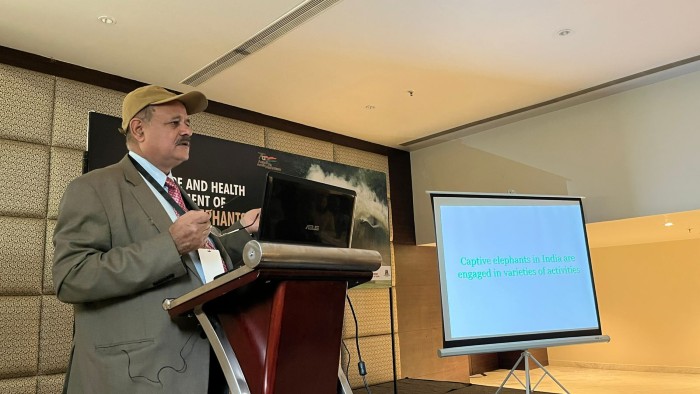
Dr. K. K. Sarma (Professor and Head, Dept. of Veterinary Surgery, Guwahati Veterinary College) spoke about Surgical Interventions in Elephants as well as Musth Management in Bull Elephants. He raised the point that though there are certain cases where the Forest Department requires the help of elephants to patrol areas like Kaziranga National Park, what is a wild animal like an elephant doing in a temple, on the streets of Delhi, or in a wedding procession? Dr. Sarma went on to cover certain veterinary interventions such as management of fractures, chain burns, overgrown toenails, etc. He included a case study about injuries like lacerations in the trunk of an elephant, which are extremely difficult to handle.
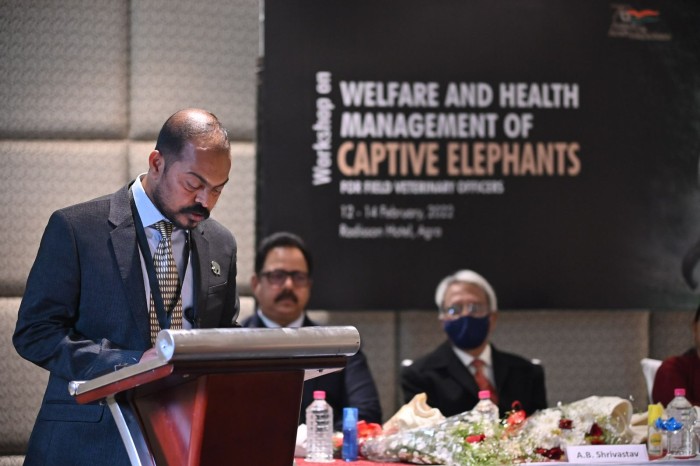
Mr. Baiju Raj. M.V. (Director – Conservation Projects, Wildlife SOS) imparted a riveting session on the Welfare Of Elephants In Captivity With Essentials Of Housing And Enrichment where he covered the need for enrichments to stimulate the elephants mentally. With the help of various examples of rescued elephants living under the care of elephants at Wildlife SOS, he provided examples of humane treatment of elephants. He highlighted various practices at our elephant care centres, such as herd formation, which helps the elephants feel comfortable and live in a dignified manner.
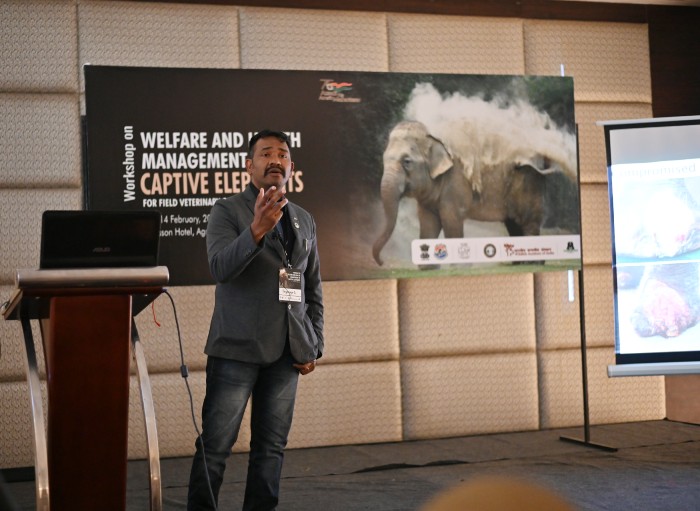
Dr.S. Ilayaraja (Deputy Director – Veterinary Services, Wildlife SOS) spoke on the Essentials of Foot-Care in Captive Elephants during the workshop. He discussed some common foot care equipment used for foot care at Wildlife SOS. Since most of our resident elephants come from a background of begging and processions, their footpads are sloughed and toenails are cracked. These elephants were forced to walk on hot tarmac roads their entire lives instead of the soft forest lands. To better manage their foot conditions, Dr. Ilayaraja speaks about his experience with elephants, with a guarantee to show these practices in person during the field visit at Wildlife SOS.
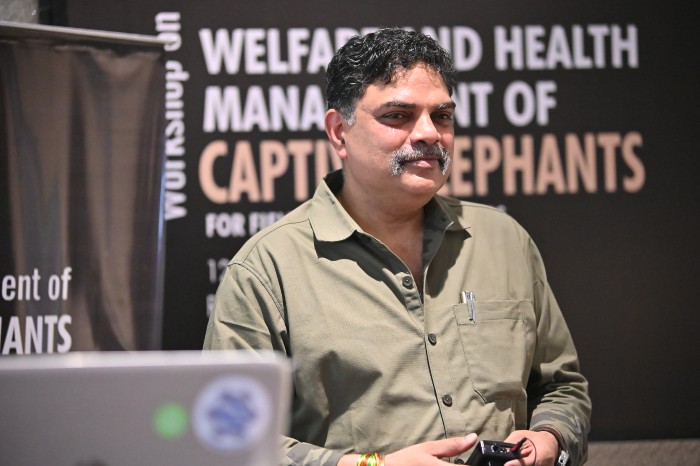
Dr. Parag Nigam (Head, Dept. of Wildlife Health Management, WII) presented on Elephant Capture And Essentials For Transportation, with regards to his experience of treating and transporting wild elephants. He spoke on the proper way to fit a harness onto an elephant, should the need for transportation arise. With the help of many case studies, he gave the participants examples of the different methods of harnessing that have been tried in the past. During the workshop, he stressed the need to talk about our failures, rather than simply talking about our successes. He cited many examples of rescue operations that failed, leading to the loss of life of humans and veterinarians. Dr. Nigam wanted the participants to study and talk about their failures so that they can prevent other veterinarians from making the same mistakes.
![Dr. Prajna Panda (National Coordinator, Elephant Cell), speaking on Captive Elephant Status And Management ]](https://wildlifesos.org/wp-content/uploads/2022/02/Dr.-Panda.jpg)
Dr. Prajna Panda (National Coordinator, Elephant Cell), spoke about Captive Elephant Status And Management, which covered the legal provisions for elephants in India. She covered the various laws for ownership, transportation and protection of elephants, while also delving into topics like forged ownership of documents and legal loopholes that can be exploited by private owners to keep elephants without due permission.
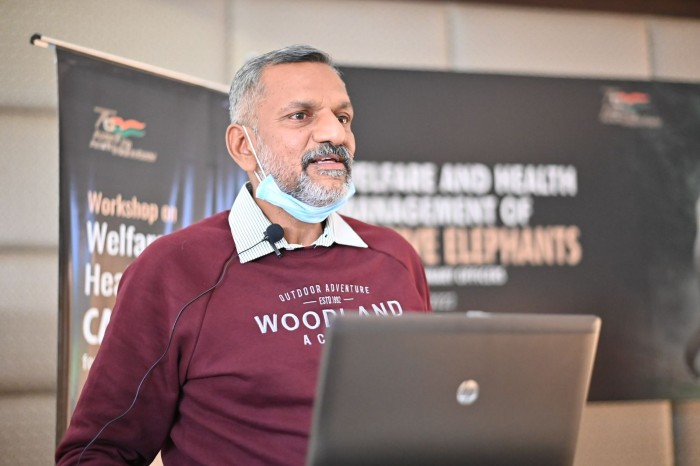
Dr. N.S. Manoharan (Additional Director (retd) Veterinary Services, Tamil Nadu) presented on Understanding Mahouts, Their Welfare And Occupational Hazards – a topic not much spoken about when it comes to elephant welfare. From his observations, there has been a shift from mahouts being a generational profession to a washed-down profession. He spoke about how earlier, knowledge sharing was confined to the immediate family of mahouts. However, due to a paradigm shift, there is now a problem, a decline in the availability of loyal mahouts who are genuinely committed to the elephants. It is imperative to have mahouts who can handle elephants with care, love, and understanding as being a mahout is not just about keeping the elephant in control.
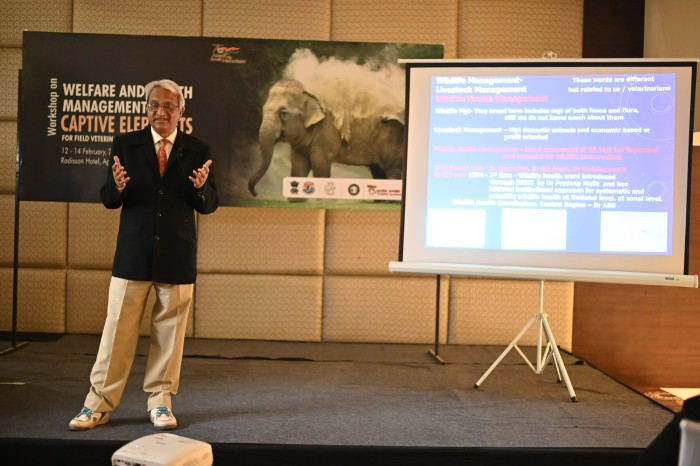
Dr. A. B. Shrivastava (Former Director, School of Wildlife Forensics & Health, NDVSU) presented on Necropsy Protocol For Elephants. His presentation consisted of many incidents from his own experience of dealing with different diseases in elephants. He showed the participants a video of an elephant calf birth with veterinarians under field conditions and covered the failures and successes of the operation. He gave the veterinarians some considerations to keep in mind while undertaking a post-mortem of a Schedule-I animal, such as proper documentation, conducting the procedure in broad daylight, and the requirement of proper necropsy equipment.
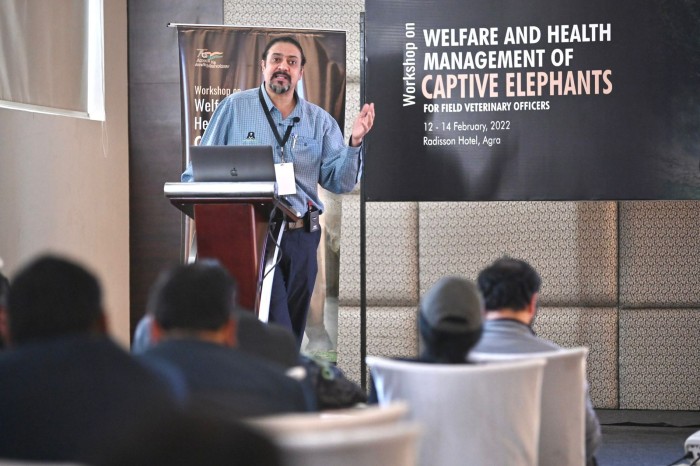
Finally, the session by Mr. Kartick Satyanarayan (Co-founder and CEO at Wildlife SOS) covered the Legal Provisions For Maintaining Elephants in Captivity. He started with an extremely emotional video of elephant calves being poached from the wild and cruelly ‘tamed’. Though the video was difficult to watch, it was important for all the participants to witness the reality. It allowed them a glimpse of the trauma that a wild animal faces when it is forcefully brought to human settlements for tourism and begging. He also spoke about the infrastructure that goes into humane elephant care at Wildlife SOS. He gave the example of the ambulance, medical equipment etc. In his presentation, Mr. Satyanarayan shared details of the abuse that our resident elephants faced prior to their rescue.
The workshop also included many other valuable presentations, which were invaluable in creating a knowledge base for the newer generation of veterinarians to use. Other than the presentations, there was also a field visit that would allow the participants to get a glimpse of target training sessions.
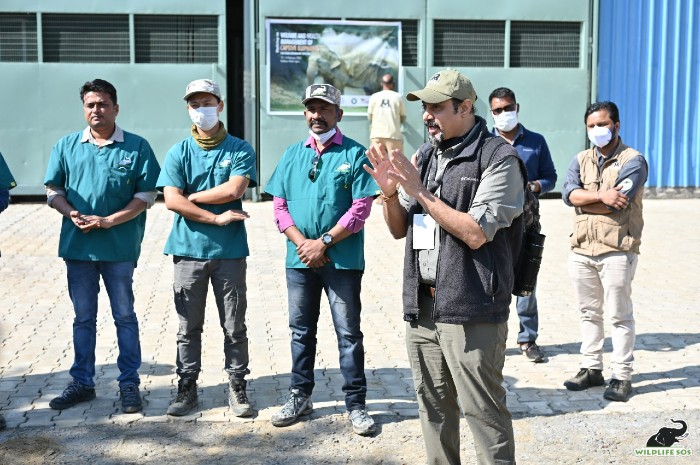
The group headed to the Wildlife SOS Elephant Hospital in Mathura. They were given a brief orientation of the various medical equipment used on a regular basis by the veterinary team. This included items like a medical hoist, microchip reader, x-ray machine and gear, thermography unit, foot grooming kit etc.
Dr. Ilayaraja headed the discussion. The veterinarians at Wildlife SOS interacted with the participants and answered any questions they had about the equipment.
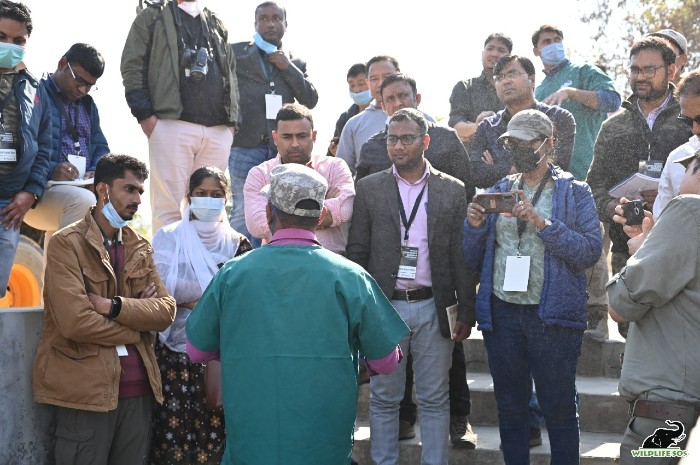
Mr. Kartick Satyanarayan showed the participants the jumbo pool for hydrotherapy purposes. He spoke about how the pool is particularly helpful for elephants suffering from ailments in the limbs as it helps them relieve some of the weight from their limbs.
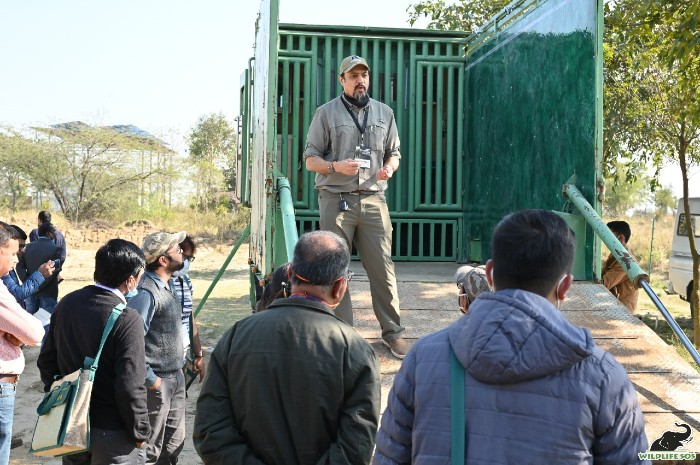
He also showed the group the elephant ambulance used for rescues. Mr. Kartick gave an orientation on the various features of the ambulance such as the staff cabin, shower to cool the elephant in summers, and the hydraulic ramp.
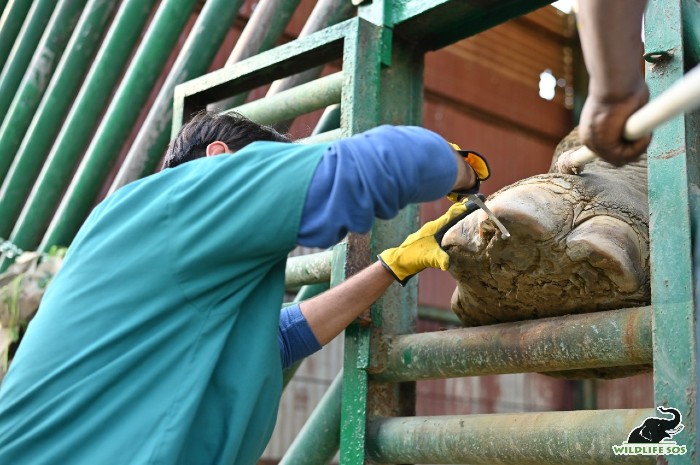
The group also visited the Wildlife SOS Elephant Conservation and Care Centre where they had a chance to see target training in action. Dr. Rahul demonstrated nail trimming on our resident elephant, Phoolkali, who cooperated with him while her caregiver fed her nuts. This session allowed the veterinarians to witness the results of positive reinforcement while also seeing the technical aspects of nail trimming on elephants.
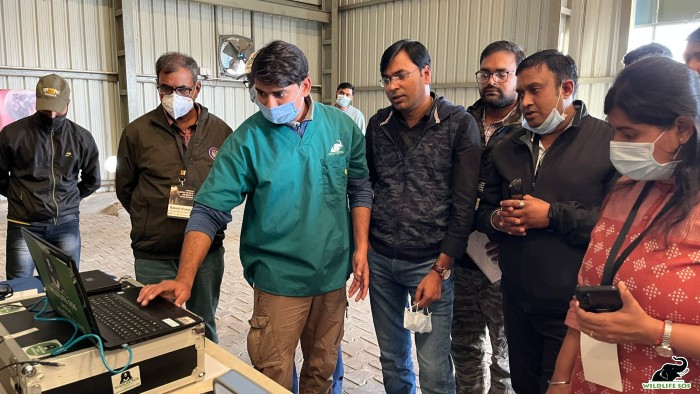
After that Dr. A. B. Shrivastava performed a blood draw on our elephant, Laxmi. After the group discussed the practical uses of the blood draw, our team of veterinarians along with Dr. Nigam discussed basic details of elephant physiology, how to calculate the estimated weight of an elephant and other similar topics.
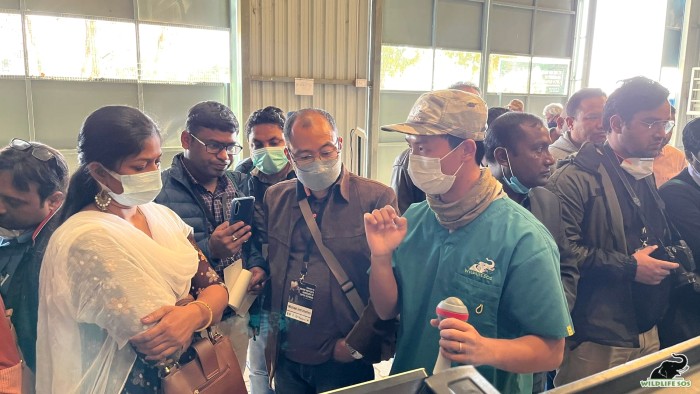
It is important to ensure the regular congregation of veterinarians from all over the country so that they can share their experiences and spread their knowledge to each other. As elephant conservation is the need of the hour, it is important for veterinarians working in the field of conservation to have a common space for collecting detailed data and literature. Wildlife SOS hopes to contribute to many such knowledge-sharing events in the future.
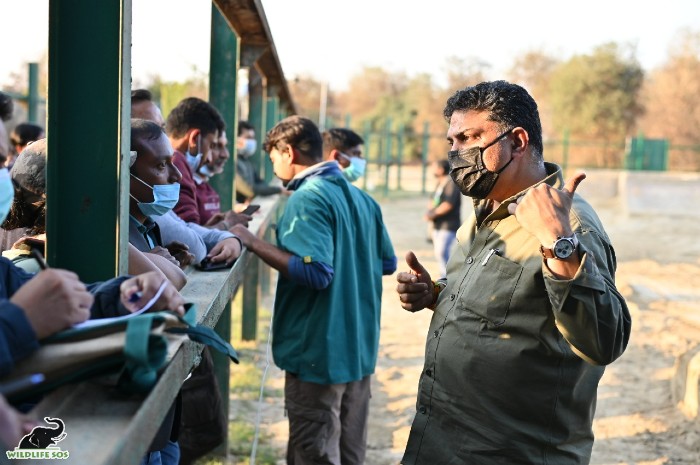
We were extremely happy to collaborate with the Wildlife Institute of India (WII) & Project Elephant Division, MOEF&CC in organizing this training workshop for Field Veterinary Officers providing services to State Wildlife Departments. Such workshops can contribute largely in improving specific wildlife management skills & technical field expertise.

